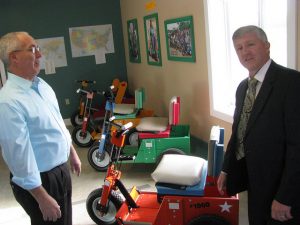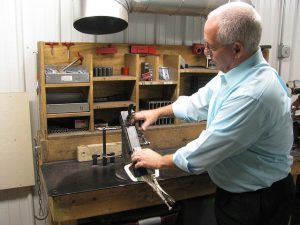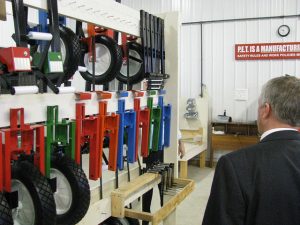
More manufacturing shops sprang up across the U. S., and by 2016, the total number of PET units passed 55,000. PET stands for Personal Energy Transportation.
In early 2016 the Malawi Project was approached by an official of the PET facility in Demotte, Indiana about participation in the distribution of units in Malawi. The Indiana facility opened in 2012 under the direction of local attorney, Bob Gabrielse, and had recently manufactured its 1,000th unit. As the director for the Indiana facility Bob also serves on the PET International Design & Standardization Committee, and is thankful for this modern facility for PET production.

“Bob is obviously a perfectionist in his workmanship,” noted Messenger as he and Stephens left the plant. “The pride and zest for quality is evident in each unit that comes out of the Indiana plant. The fact they paint each unit with three coats of paint, then touch up every tiny spot attests to their concern for quality,” Messenger added.
“I agree,” Stephens observed. “I was also impressed with the design of the manufacturing process. I have been in a lot of manufacturing plants over the years, and this is one of the best-designed facilities I have seen. Each procedure is quality controlled in a way that avoids most mistakes. If something does go wrong it is easily and quickly caught and corrected.”

